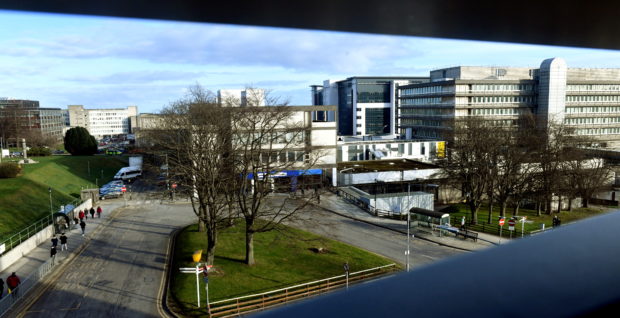More than 50 GP practices across the north-east and Moray have adopted a new online consultation service designed to save time for both medical experts and patience and improve care.
It is hoped the new eConsult service will also have a major impact on rural communities, removing the need for patients to make potentially long journeys to medical practices.
The service enables patients to submit their symptoms or make a request with their GP by completing a quick questionnaire.
Practices then receive the patient’s history in a concise document, readable within three minutes, and can then use the patient’s history to decide the best course of action for the patient and how to communicate, be it face-to-face if required, or via text, phone call or email.
It is hoped the introduction of the scheme across practices in the NHS Grampian area will reduce waiting times and ensure that those who do need to meet up in real life for a consultation can do so earlier.
The new programme has been rolled out to 51 locations so far and the health board hopes more patients will consider using the online consultations to help them in giving care to those in need.
Simon Bokor-Ingram, the chief officer of health and social care for the Moray Health and Social Care Partnership, said the service is helping NHS Grampian and the region’s three integration joint boards (IJBs) to overcome difficulties brought about by Covid-19.
He said: “Our practices were facing a range of challenges, such as high volumes of calls, long appointment wait times and now finding ways to support patients during Covid-19.
“We wanted to find a solution for them that would help ease this burden and ensure that they could provide the best possible care.
“eConsult has allowed patients to receive care wherever they are, at any time, and doesn’t require them to phone or visit a practice unless they have to.
“For example, whereas before patients would have to attend the practice for long-term condition reviews, they can now quickly complete a form online updating their doctor on their condition.
“They can then review this and decide on the best course of action remotely.
“This has eased pressure on staff who can now prioritise their patients and their workload.”
He added: “It has also benefited patients.
“Those in rural areas who would have to travel long distances to their practice can now access care from home and patients no longer have to make unnecessary trips to their surgery.
“For those who don’t have internet access, or need to speak to or see a clinician, they can now get through to the practice quicker as other patients are being treated remotely and not taking up as much time.”
